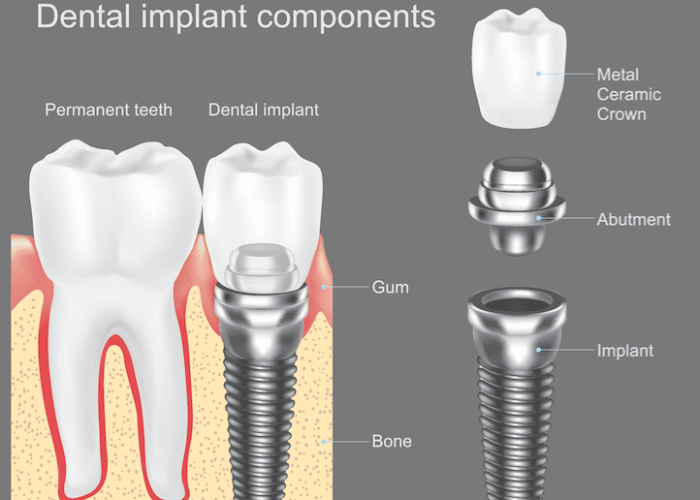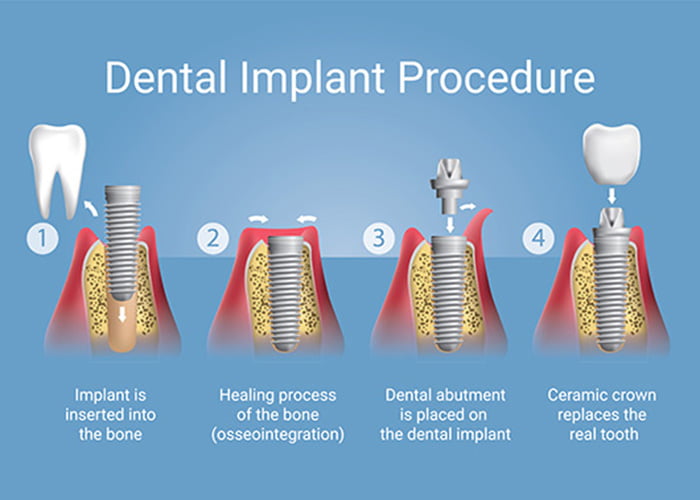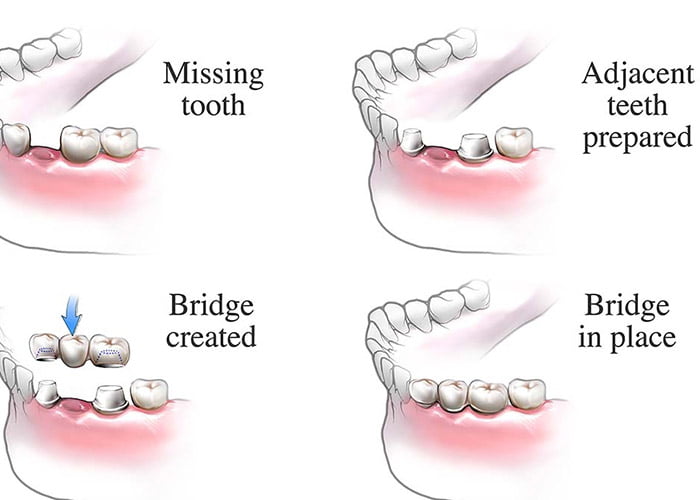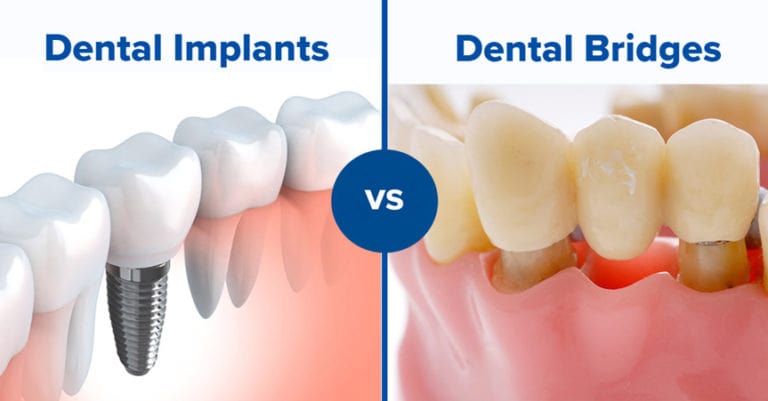If you are considering getting a dental implant or bridge, it is important to understand the difference between the two.
Dental Implant
A dental implant is a metal post that is surgically implanted into the jawbone to act as artificial toot roots to hold a false tooth in place. The false tooth is then placed on top of the metal post.

Dental implants are a popular choice for people who are missing one or more teeth, as they provide a more permanent solution than a dental bridge.
There are several advantages to choosing a dental implant over a dental bridge. First, implants do not require support from adjacent teeth, as bridges do. This means that implants are less likely to damage healthy teeth. Second, implants are more durable and long-lasting than bridges. With proper care, an implant can last a lifetime.

The main disadvantage of dental implants is the cost. Implants are typically more expensive than bridges, and the surgery required to place them can also be costly. However, many insurance plans cover at least part of the cost of implants.
Dental Bridge
A dental bridge is an artificial tooth that is used to fill in the space of a missing tooth. It involve attaching false teeth to adjacent natural teeth.

The bridge includes one or more crowns for the teeth that are on either side of the gap. The anchoring teeth are called abutment teeth, while the false teeth that fill the gap are called pontics.
A dental bridge is held in place by dental cement.
Dental bridges are also easier to install and don’t require surgical procedures. However, bridges can be less comfortable than implants, and they don’t last as long.
If you regularly smoke cigarettes and chew tobacco, dental bridges may be the best treatment option for you.
Which is better?
Both options have their benefits and drawbacks. It is important to consult with your dentist to see which option is best for you.
There are several factors to consider when choosing between a dental bridge and an implant, including cost, durability, and ease of care.
Cost
The cost of dental implants can be prohibitive for some patients. A single implant can cost several thousand dollars, and the surgery to place the implant can add several hundred or even a few thousand more to the bill. In contrast, a dental bridge is much less expensive, with the materials and labor totaling only a few hundred dollars in most cases.
Even though dental bridges are typically less expensive than implants, they may not last as long.
So, which is better? The answer depends on many factors. For example, if you are only missing one tooth, an implant is probably the best option. But if you are missing multiple teeth, implants can quickly become quite expensive. In that case, a bridge may be a better option since it will restore your smile at a fraction of the cost.
Ultimately, the decision comes down to what is best for your individual situation.
Durability
Dental implants are the clear winner. They are more durable than bridges, but they are also more expensive and require more care. With proper care, dental implants can last a lifetime. Dental bridges, on the other hand, typically need to be replaced every five to seven years.
If you are looking for a more permanent solution, dental implants are the way to go. But if you are not ready or able to commit to surgery, then a dental bridge may be the next best thing.
Ease of care
When it comes to ease of care, dental implants are the clear winner. With bridges, you must be careful about what you eat and how you clean your teeth, since the bridge can become loose if not cared for properly. With implants, you simply brush and floss as usual. There is no need to worry about special cleaning techniques or avoiding certain foods.
Conclusion

Dental implants are the best option for replacing missing teeth because they look and function just like natural teeth. They also don’t require any special care, and they can last a lifetime with proper care.
Dental bridges are also a good option for replacing missing teeth, but they have some disadvantages. For one, they rely on the adjacent teeth for support, which can weaken those teeth over time. Additionally, dental bridges can be difficult to clean, and they usually only last about 10 years before needing to be replaced.
See Dentist For Life
Looking for an experienced and trusted dentist in Marysville, Ohio? Look no further than Dentist For Life! We provide comprehensive dental care for patients of all ages. We take a wide variety of insurance plans and are currently accepting new patients. You can reach us at (937) 707-1111 or schedule your appointment online here.



One Response
I find it surprising that you can use dental implants for teeth replacement because of their durability. I saw a couple of online dental ads offering these services, which made me curious about them. I should share this with my colleague who wants to improve his smile in the future.